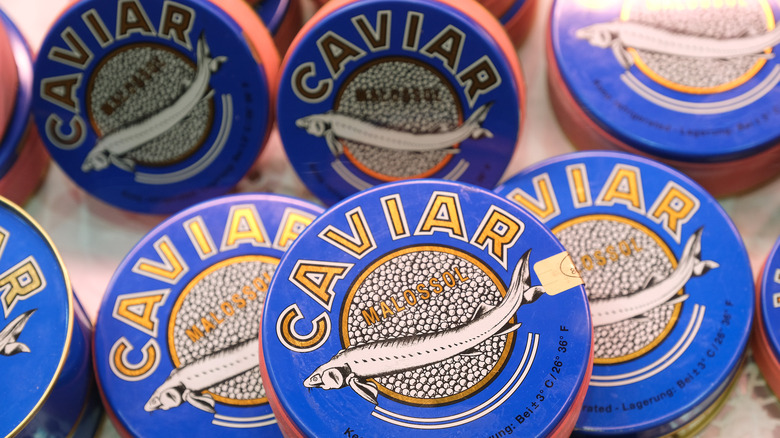The Russian Caviar Heist You Probably Forgot About
For most Americans, caviar isn't part of their regular diet. But the fish eggs are big business in Russia, where the delicacy plays a prominent role in national culture and cuisine. In fact, it's such a big deal that caviar was even the target of a massive (if not particularly sophisticated) heist nearly two decades ago.
A BBC report from January 2005 detailed the robbery, which happened in Moscow during the New Year's holiday. The owner of a truck containing nearly 850 industrial-sized cans of caviar parked it in a secured lot and then went to celebrate. When he returned on January 2, he found the locks had been broken, and the entire stash — weighing 22 tons — was gone. The BBC estimated the value at the time as $470,000, about three-quarters of a million in today's dollars. Even more impressively, the crooks seem to have gotten away with it, with no reported arrests in the case.
It could have been worse
Fortunately for both the burglarized businessman and Russian caviar enthusiasts, it was red salmon caviar that was stolen, not the beluga sturgeon variety that is the most expensive caviar in the world. Some exceptionally prized types can be priced at $35,000 or more per kilogram.
Red caviar is much more accessible to ordinary people, and its status as a decadent delicacy is one of the reasons it's commonly found as part of the spread at Russian New Year celebrations. Culturally, many Russians indulge in caviar on New Year's with the belief that it could be a good omen for the months to come.
If you're wondering why caviar is so expensive, the price is due to a combination of rarity and skilled labor costs. The former is especially true for sturgeon, many species of which are threatened or endangered. High-end caviar also needs to be carefully harvested by hand, meaning producers can't take advantage of the cost savings that automation provides for most other food industries. While it may have slipped from the headlines, appreciators of caviar will always remember this high-dollar caper — even if the case has never been solved.

